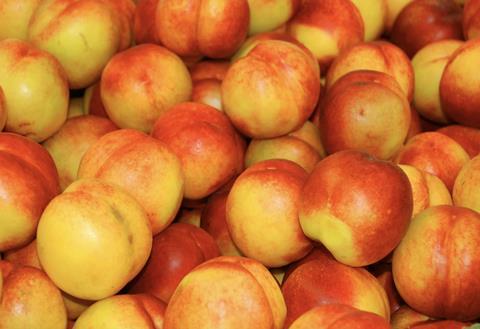Later, shorter winters are creating quality issues for Egyptian stonefruit producers, while an early season in Spain is further limiting the supply window
This year’s stonefruit season in Egypt has been tough going so far, according to Karim Fayed, operations manager at Fata Farms, in large part due to changing weather conditions.
“The production volume is similar to usual, but export volumes are down year on year due to scars and blemishes on some fruit and the market closing earlier than usual due to the early start of the Spanish season,” revealed Fayed. “The weather plays a huge role in whether we achieve the correct sizing or not, as this is a factor that we have very little control over.”

The main issue, he said, is that winter is arriving a few weeks later than in the past. “Our data from the weather station at the farm over the past three to five years has shown that the winter is now shorter and later than it used to be,” he said. “This creates an issue during budbreak, with the accumulation of leaves on the trees usually helping with the Brix level and with sizing. Our chilling units are also seeing a decrease and this leads to the fruit maturing before it accumulates the required units for better production and quality.”
Fata Farms produces a wide selection of stonefruit varieties, including SunectTwentyOne, Sunwright and the white flesh Flavana for nectarines, SupechFifteen and FloridaPrince for peaches and SuplumFortyOne for plums.
“Our main market is the UK,” said Fayed. “We export 99 per cent of our stonefruit production to the supermarkets there. We have built long-standing relationships with them, providing stonefruit and other produce over the years.”
Labour availability is not usually an issue in Egypt, but national holidays during the stonefruit season necessitate a greater reliance on seasonal workers. “We can struggle to find consistency in supplies during that period,” said Fayed, “which can affect our efficiency in the supply chain.”
Thankfully, since Fata’s stonefruit is generally sent to the UK market by air, the company has managed to avoid the shipping issues that have affected the Red Sea area since the end of last year.



